
Hans Köchler is a retired professor of philosophy at the University of Innsbruck, Austria, and president of the International Progress Organization, a non-governmental organization in consultative status with the United Nations. In his general philosophical outlook he is influenced by Husserl and Heidegger, his legal thinking has been shaped by the approach of Kelsen. Köchler has made contributions to phenomenology and philosophical anthropology and has developed a hermeneutics of trans-cultural understanding that has influenced the discourse on the relations between Islam and the West.
Klaus Gustav Heinrich von Beyme was a German political scientist who was professor of political science emeritus at the Faculty of Economic and Social Sciences of the University of Heidelberg.
Hans Lenk is a German rower who competed for the United Team of Germany in the 1960 Summer Olympics, and an Emeritus Professor of Philosophy. He was born in Berlin.

Susanne Schröter is a contemporary Social Anthropologist focussing primarily on Islam, Gender and Conflict Studies.
Moritz Freiherr von Leonhardi was a German anthropologist.

Christoph Wulf is a German professor of Anthropology and Education at the Free University of Berlin.
Hans Peter Duerr is a German anthropologist and author of ten books on anthropology. Duerr studied at both the University of Vienna and the University of Heidelberg, eventually gaining his doctorate in 1971 with a dissertation on consciousness theory in philosophy. From 1975 through to 1980 he worked as a lecturer and visiting professor of ethnology and cultural history at the University of Zurich, University of Kassel and University of Bern, before settling down permanently at Kassel. From 1992 to 1999 he taught as a professor of anthropology and cultural history at the University of Bremen, before moving back to Heidelberg.

Aleida Assmann is a German professor of English and Literary Studies, who studied Egyptology and whose work has focused on Cultural Anthropology and Cultural and Communicative Memory.
Klaus Koschorke is a German historian of Christianity and was a Professor of Early and Global History of Christianity at the University of Munich in Germany from 1993 to 2013.
Gerd Koch was a German cultural anthropologist best known for his studies on the material culture of Kiribati, Tuvalu and the Santa Cruz Islands in the Pacific. He was associated with the Ethnological Museum of Berlin. His field work was directed to researching and recording the use of artefacts in their indigenous context, to begin to understand these societies.
Andre Gingrich is an Austrian ethnologist and anthropologist, member of the Austrian Academy of Sciences, director of the Institute for Social Anthropology of the Austrian Academy of Sciences, and retired professor at the University of Vienna.
Georg Pfeffer was a German anthropologist. Born in 1943 in Berlin to a German sociologist father and a British mother, he was schooled in Hamburg. In 1959, he moved to Lahore with his family, and studied at the city's Forman Christian College for 3 years. Later, he moved back to Germany and studied at the University of Freiburg where he also completed his Ph.D.
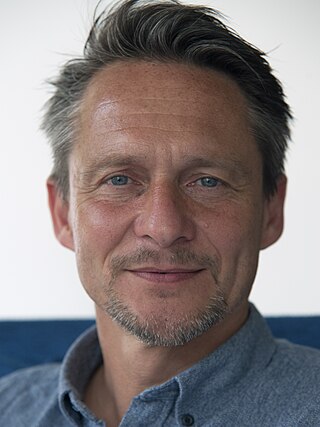
Roland Josef Hardenberg is a German professor for Social and Cultural Anthropology. From 2009 to 2016 he was director of the Department of Ethnology at the Eberhard Karls University of Tübingen and from 2013 to 2017 deputy spokesperson of the CRC 1070 "ResourceCultures: Socio-cultural dynamics in the use of resources". In October 2016, he moved to a professorship for Social and Cultural Anthropology at the Goethe University Frankfurt am Main and took over as director of the Frobenius Institute in 2017. From 2017 to 2020, he was also managing director of the Institute for Ethnology at the Goethe University. Together with Holger Jebens he publishes the scientific journal Paideuma: Journal of Cultural Anthropology.

Joanna Pfaff-Czarnecka is a university professor in the Faculty of Sociology at Bielefeld University, Germany. She is a former Pro-Vice-Rector at Bielefeld University and former Dean of the Faculty of Sociology at the University.
Wilhelm Emil Mühlmann was a German ethnologist who served as Professor of Ethnology at the University of Mainz and Chair of Ethnology at the University of Heidelberg.
Fawzi Boubia, born in 1948 in Khemisset, is a Moroccan intellectual.
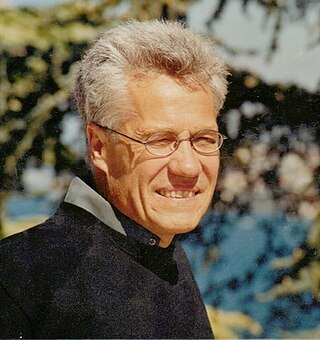
Georg Elwert was a German ethnologist and sociologist who was one of the leading exponents of German development sociology.
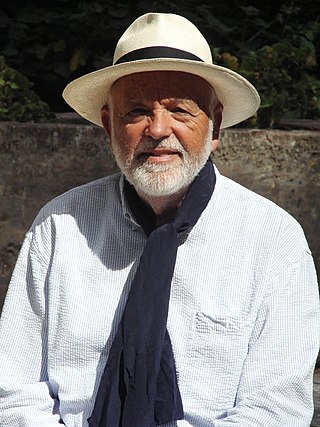
Gerd Spittler is a German ethnologist.
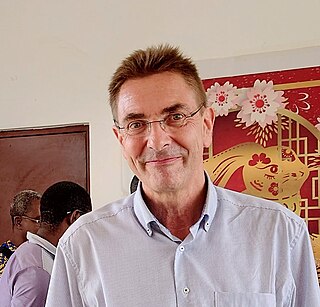
Hans Peter Hahn is a German ethnologist, member of the board of the Vereinigung für Afrikawissenschaften in Deutschland and program officer of the 'Franco-German Master of Arts : Ethnology and its German-French perspectives'.
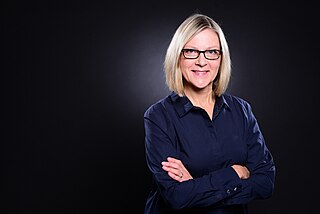
Katja Werthmann is a German ethnologist with a regional focus on West Africa. She is a professor for 'Society, politics and economy of Africa' at the Institute for African Studies at the University of Leipzig. K. Werthmann conducts research in Anglophone and Francophone Africa on the handling of material and symbolic resources in the context of spatial and social mobility in contemporary Africa. She has made contributions to political, economic, religious and urban ethnology. After the Doctorate at the Freie Universität Berlin and the Habilitation at the Johannes Gutenberg University Mainz she taught at universities in Germany, Switzerland (Zürich) and Sweden (Uppsala). Since 2012 she has been a university professor at the University of Leipzig.










